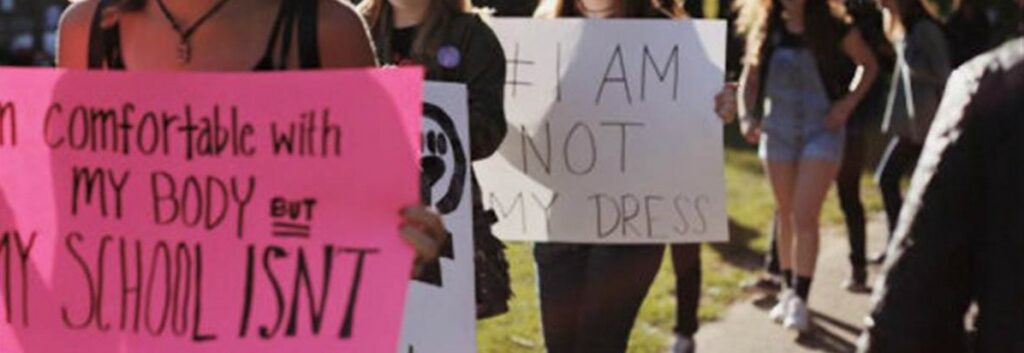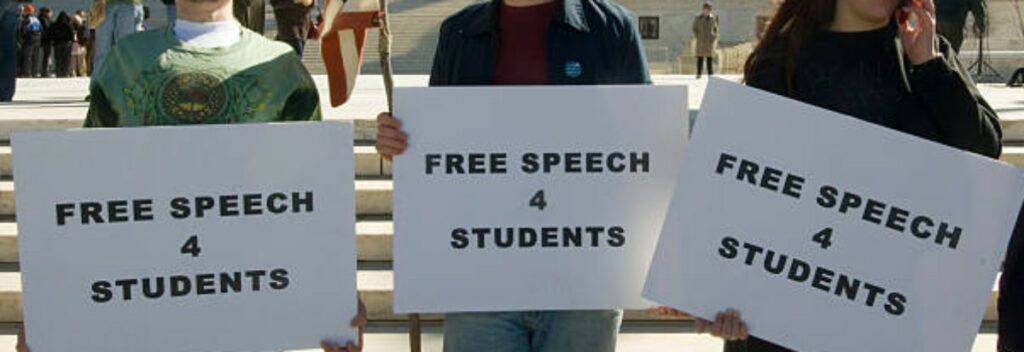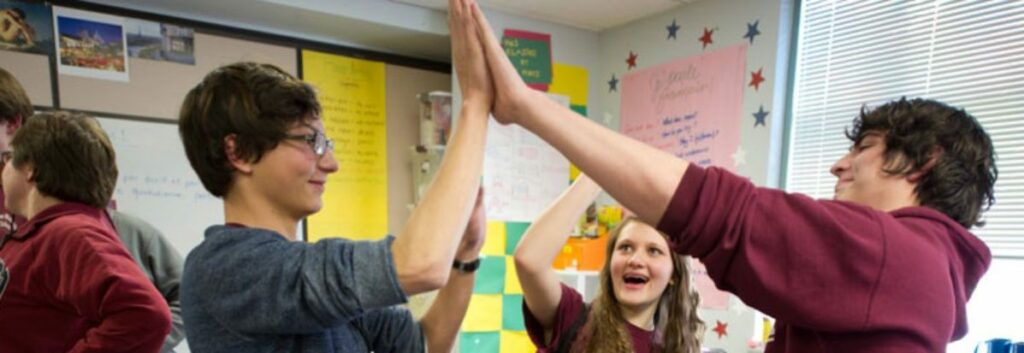The Fourth Amendment of the Constitution guarantees the right of everyone “to be secure in their persons, houses, papers, and effects, against unreasonable searches and seizures.” This means that if the government (and government institutions like public schools) wants to search your belongings, or take them away from you, they must have a good reason to do so and they must follow the proper procedure.
As with other Constitutional rights, NYRA believes this right applies to everyone equally regardless of age. However, many court cases have allowed schools to conduct searches that would be illegal if students were not involved. And because there is very little protection of students’ rights, school authorities have conducted egregious violations of the privacy, dignity and rights of young people, such as searching an entire class when an item goes missing, conducting a strip-search for insignificant amounts of money, threatening students with suspension if they didn’t turn over the passwords to their phones, and groping students. We believe that all students retain their Fourth Amendment rights in and out of school.
Like searches, the seizure, or confiscation, of personal property is limited by the Fourth Amendment. Despite this, nearly every school has a policy of taking certain items belonging to students. Most commonly, this includes cell phones, but school have confiscated anything from stuffed animals to permanent markers. Unfortunately, this practice is rarely challenged even though taking someone’s property without their permission or without reasonable cause violates their property rights. In some cases, schools will even charge a fee for returning the item, and collect thousands of dollars each year. Schools may also not return items to the student at all, yet students do not have any legal recourse if the school loses students’ property after it is confiscated. Unless students are breaking the law or infringing on another’s right to education, students should be allowed to retain all personal items.
Are School Searches Legal?
When courts try to determine whether a school search violates the Fourth Amendment they consider a variety of factors:
- The evidence for the search: In most cases, the school must be able to state specifically what they are looking for and have a good reason for believing they will find it in the place they are looking. Unfortunately, what determines a “good” reason is not always clear.
- The item being looked for: In general, the more dangerous an item is, the more invasive courts will allow a search to be.
- What is being searched: Depending on whether the school is searching your locker, your backpack, or under your clothes, it needs to comply with different requirements.
- The person doing the search: Different rules apply to the search depending on whether it is conducted by a teacher or principal, a school resource officer, or a police officer.
The evidence for the search
Courts have determined the legality of searches using three different criteria:
- Probable cause: This is the highest standard required for a search and requires the police to have sufficient evidence that you committed a crime and that there is a substantial chance that they will find evidence of that crime by searching you or your belongings. However, school officials do not need probable cause in order to search you or your belongings at school. In fact, even police officers are rarely required to have probable cause if they are working on behalf of the school. They can use the much weaker standard of reasonable suspicion.
- Reasonable suspicion: This is the usual standard used for any kind of search conducted against students at school. Reasonable suspicion does not require a search warrant and only requires that a police officer show that it was reasonable to believe that a search could turn up evidence of a crime, based on facts. Normally, this standard can only be used in a few circumstances, such as during arrest or if you are being frisked for weapons.
- Suspicionless or random searches: In a few situations, neither reasonable suspicion nor probable cause is required for a search. Outside of schools, the courts have only allowed random searches in specific circumstances such as at airports and international borders, in circumstances where there are elevated risks or national security interests at stake. However, the US Supreme Court has ruled that many types of random searches are constitutional when performed against students on school campuses, even though there are no elevated risks or national security interests at stake.
What is being searched
In general, the more intrusive a search is, the more evidence will be required to justify it. This basically means that the school must have a stronger reason for a searching your body than for searching your belongings and they must have a stronger reason for searching your belongings than for searching your locker.
Strip searches
A strip search is one of the most invasive searches performed at school and it is often conducted illegally. In the case of Safford Unified School District v. Redding (US Supreme Court, 2009), an eighth grade student, Savana Redding, was strip-searched by school officials because another student said she might have ibuprofen hidden in her underwear, which violated the school’s policy. Savana sued her school and NYRA joined an amicus brief in her defense. The Court found that strip searches are “categorically distinct” and must meet stricter requirements than other searches, due to the deeper invasion of the student’s privacy. For such a search to be permissible, evidence must show that dangerous or illegal items are hidden there. Suspicionless strip searches are almost always illegal and schools can pay hefty settlements for violating the rules.
Searches of outer clothing and pat-downs
Legal standards for pat-downs in school are unclear, especially since many searches referred to as pat-downs are actually partial strip searches. It is therefore unclear whether random pat-downs of students that only involve outer clothing are actually illegal. Successful challenges of pat-downs usually happen when 1) the school official groped the student during the search, or 2) the “pat-down” was suspicionless and involved removing clothing.
Video recording
Schools have also severely violated students’ right to privacy by video recording students without their knowledge while changing in a locker room. Because students have a reasonable expectation of privacy in changing rooms, such searches are considered illegal, such as in Brannum v. Overton County School Board (Sixth Circuit Court of Appeals, 2008).
Personal belongings
School officials only need reasonable suspicion that there is a crime before searching a student’s belongings. In the landmark case of New Jersey v. T.L.O. (US Supreme Court, 1985), the Court ruled that school administrators do not need to have a search warrant or probable cause before conducting a search because students have a reduced expectation of privacy when in school.
Nevertheless, there are limitations on schools searching students’ belongings. For example, in the case of Burnham v. West (Eastern District Court of Virginia, 1987), the court concluded that the odor of marijuana in the hall does not provide sufficient reason to search all students’ book bags, purses, and pockets. It should be noted, however, if an object or item is in plain view, a teacher can take it or search it without reasonable suspicion. Because of this, some schools have required students to only use clear backpacks so that their possessions can be seen.
These standards also apply to parked cars on campus, as in State v. Slattery (Court of Appeals of Washington, 1980).
Student lockers
For the most part, federal law allows locker searches because lockers are considered school property and students shouldn’t expect anything they put in there to be kept private. This pertains to other school property, such as desks. However, individual states and school districts may have policies that give greater protection to items in students’ lockers, where the locker is seen as the equivalent of a personal bag, but such cases are uncommon.
Metal Detectors
Although schools need reasonable suspicion to single out a student with a metal detector, they are allowed to search the school premises with a metal detector or randomly select students with a metal detector without cause. A metal detector search is often considered a body search, but it is also considered minimally intrusive. Courts have upheld the use of metal detectors at schools and other places such as courthouses and airports.
Cellphone searches
In recent years, NYRA and other civil rights groups have fought for student rights by challenging cell phone searches that were not justified, as in the case of Boca Raton Community High School. For many years the high school had a policy of searching through the text messages, photos, emails, and voicemails of student cell phones that were confiscated during class. Thanks to the efforts of NYRA’s Southeast Florida chapter, the school changed its cell phone policy; cell phone searches can now be conducted only when there is reasonable suspicion.
Social media accounts
Schools often try to force students to give school administrators the passwords to their social media accounts. One student successfully sued her school after she was forced to log in to her Facebook account in the principal’s office. In that case, S.S. v. Minnewaska Area School District (District Court of Minnesota, 2012), the school had to pay damages and revise its social media privacy policy.
Drug-sniffing dogs
The use of drug-sniffing dogs on private property or to prolong traffic stops requires reasonable suspicion. However, because students in school have “no reasonable expectation of privacy,” random searches by drug-sniffing dogs are legal in schools.
In addition to being an invasion of privacy, these searches are not particularly effective. Studies indicate that drug-sniffing dogs are prone to false alerts which lead to unjustified searches. As a drug detection method, they can be barely more accurate than a coin flip. Drug-sniffing dog programs are also expensive, costing the school district $12,000 to $36,000 per year—money that is needed elsewhere. Despite these problems, some school districts continue the practice of using drug-sniffing dogs.
Drug-testing
In the landmark case of Vernonia v. Acton (U.S. Supreme Court, 1995), the Supreme Court ruled that the random drug testing of high school athletes does not violate the reasonable search and seizure clause of the Fourth Amendment. In Board of Education v. Earls (U.S. Supreme Court, 2002), the Supreme Court upheld the Student Activities Drug Testing Policy of the Tecumseh, Oklahoma school district, asserting that the policy of requiring all students participating in competitive extracurricular activities to submit to drug testing was useful to the school district in detecting and preventing drug use. However, students are being forced to undergo drug testing without probable cause. These tests are also prone to give false positives.
Nevertheless, students often consent to random drug screening in an effort to preserve their privileges such as being able to participate in sporting events or having the liberty of driving their cars to school. The fact that students are punished for refusing makes this coerced consent, which is not meaningful consent.
Who is conducting the search?
In school, searches are often conducted by teachers, administrators, Student Resources Officers (SROs), or police officers. In some cases, courts have decided that school officials conducting a search on the basis of information from the school resource officer are acting as agents of the police and are, therefore, subject to the higher standard of probable cause, as in State of New Hampshire v. Heirtzler (Supreme Court of New Hampshire, 2000). When police officers in schools search students at the request of school administrators, they are sometimes legally allowed to search based only on reasonable suspicion, rather than being required to obtain a search warrant based on probable cause, as in Wisconsin v. Angelia D. B. (Supreme Court of Wisconsin, 1997). Anything illegal or banned by school policy, be it a gun, illegal drugs or alcohol, or a banned cell phone, can be confiscated and searched. Nonetheless, state laws may place added restrictions on the searches.
What you can do
Things to Remember
- It is important to note that while privacy in the United States is a right protected by the Constitution, searches and seizures are sometimes necessary in order to keep people safe.
- Make them justify their search. If your school does try to search you or confiscate your property, ask what their justification is. If possible, try to get them to write it down.








